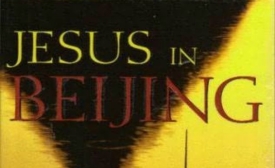china
That China and the United States are in a race to gain sway over countries possessing vital natural resources, not only in Africa but across the developing world, is hardly news...Yet while the two powers approach the question of influence from different starting points, they are also increasingly overlapping in the way they develop their soft power—particularly in the use of their navies.
Looking at the seemingly inscrutable actions of the men who rule Beijing, Washington often assumes many in the Chinese government to be anti-American, whereas the Chinese public is pro-American. The reality is almost exactly the opposite.
China Xinhua News Network Corporation (CNC)'s English channel has further extended its international reach with the successful launch of satellite broadcasts in North America on Sunday.
As an effort to attract Chinese tourists to the US or improve America's image in China, the pavilion was an epic failure; but as a symbol of Obama's America, it wasn't bad. It's not very surprising that Shanghai Expo 2010, which just ended (coincidentally) on Halloween night, never attracted much interest in the US.
A direct connection to the world’s oldest continuous civilization now exists at UK. The Confucius Institute was inaugurated Saturday before a full crowd at the Singletary Center for the Arts.

The USC Center on Public Diplomacy and the USC School of Policy, Planning, and Development are pleased to co-sponsor a talk by David Aikman, titled, "Jesus in Beijing: How Christianity is Transforming China and Changing the Global Balance."
Last week the Shanghai Expo 2010 closed. On three sweltering days this summer I toured the vast and frenzied space that was the Expo. My objective was to see how the nations of the world were representing themselves to the Chinese public and how each responding to the Expo's official theme: 'Better City, Better Life.'
Google CEO Eric Schmidt gave insight into the company’s burgeoning international policy on Wednesday night at a meeting at the Council on Foreign Relations (CFR) in New York City. Schmidt, who oversees the company’s technical and business strategy, spoke about the effects of technological democratization in the modern age and some of the challenges Google faces as it drafts its early forays into diplomacy.







